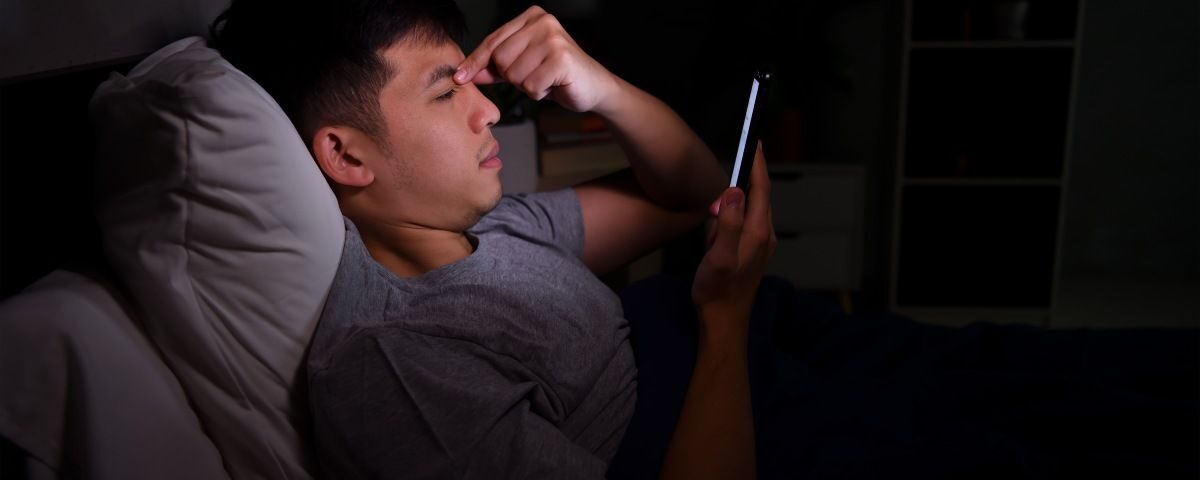Sleep is a physiological state characterized by the body’s temporary rest and decreased brain activity. Thus, do’s and don’ts of sleep hygiene are essential for health and well-being because it is during sleep that the body recovers and regenerates.
Lack of sleep or poor sleep can affect mental and physical health, negatively impacting quality of life. Sleep is so important that if a person does not get enough sleep, their body can “force” sleep, entering a state of daytime sleepiness.
The duration of sleep varies between people and depends on several factors, such as age, lifestyle, work schedules, and difficulties with some disorder. To achieve your best sleep, there are some interesting practices in what we call “Sleep Hygiene” that can help you, check them out:
What is the importance of sleep hygiene?
Sleep is important for our overall health and well-being. It helps our bodies heal and repair themselves, and it gives our brains a chance to rest and rejuvenate.
Sadly, many of us don’t get enough sleep. This can lead to a variety of health problems, including increased stress levels, decreased productivity, and an increased risk of obesity and chronic disease.
From this, sleep hygiene becomes essential, as it is the set of habits and practices that promote good sleep. It is important to have good sleep hygiene because it can help improve the quality and quantity of your sleep.
Healthy sleep habits can also help you feel more rested during the day and can help reduce your risk of developing sleep problems or even in other areas of health.
There are many different aspects of sleep hygiene that should be followed and others avoided, as we will see below:
Do’s and don’ts of sleep hygiene
You should do a few things to ensure you get a good night’s sleep. These are often called “sleep hygiene” habits. Following these do’s and don’ts of sleep hygiene can help you get the restful sleep you need.
Creating a Sleep Routine
This means going to bed and waking up at the same time each day, even on weekends and holidays. Getting enough rest is critical for both physical and mental health. A regular sleep schedule can also help improve your productivity and mood.
Create a relaxing bedtime routine
This may include taking a warm bath or shower, reading, or listening to calming music. By taking some time to wind down before bed, you can give your body and mind the opportunity to rest and recharge. There are a few simple things you can do to create a relaxing bedtime routine that works for you.
Bedroom Environment: dark, quiet, and cool
This is because darkness promotes the release of melatonin, which makes you sleepy. Noise and light can disrupt melatonin production and make it harder to fall asleep. A cool room is also conducive to sleep because it mimics the temperature drop that occurs naturally at night.
Don’t drink caffeine before bed
Caffeine and alcohol are both stimulants which can make it difficult to fall asleep. Second, they can also disrupt your sleep once you do fall asleep. Finally, drinking too close to bedtime can lead to frequent trips to the bathroom, which can also disrupt your sleep.
Don’t use electronic devices in bed
The blue light from screens can interfere with your body’s natural sleep rhythm, making it harder to fall and stay asleep.
Exercise before bedtime
Exercise can help you sleep better, but only if you do it at least a few hours before bed. Otherwise, you may have more trouble falling asleep because your body can’t stay in the sleep phase called REM (Rapid Eye Movement).
Relax and clear your mind before bed
This allows the body and mind to prepare for rest and helps prevent insomnia. Relaxing can also decrease anxiety and stress, which can negatively affect sleep. Some ways to relax before bed include taking a warm bath, reading a book, or listening to soft music, but each person has their own unique relaxing activities.
Don’t work in bed
Working in bed can make your mind more tired and therefore less productive. Another reason is that working in bed can cause back and neck pain due to improper posture. In addition, it can be a distraction to rest and sleep, which can negatively affect the quality of your sleep.


